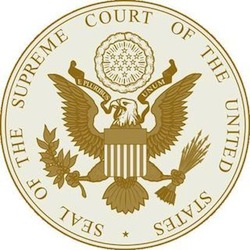The U.S. Supreme Court has unanimously decided today to uphold citizens’ Fourth Amendement rights in the GPS tracking case which would have allowed the U.S. government to track a suspects’ cars without a warrant. The court states that the Fourth Amendement’s protection of “persons, houses, papers and effects, against unreasonable searches and seizures,” extends to vehicles.
According to the ruling (PDF version here), a warrant is required “[w]here, as here, the government obtains information by physically intruding on a constitutionally protected area,” including a car.
The court case stems from a one involving nightclub owner Antoine Jones, who was sentenced to life in prison for drug dealing before the appeals court overturned the ruling. The government had installed a GPS device on the suspect’s Jeep, which led to his later arrest. The government tracked Jones over four weeks in order as a part of its case proving Jones was distributing cocaine and storing it and money in a suburban house outside Washington D.C.
In today’s ruling, five Supreme Court justices, Justices Antonin Scalia, Anthony Kennedy, Clarence Thomas, Sonia Sotomayor, and Chief Justice John Roberts, agreed that attaching a GPS to a car would violate a person’s Fourth Amendment rights. The other four justices, led by Samuel Alito, agreed in the Jones judgement itself, saying that the move to attach the GPS violated Jones’ “reasonable expectations of privacy.” All judges agreed that GPS tracking should require warrants, which upheld the appeals court decision.
The ruling will have a serious impact on police investigations going forward, as GPS tracking has become a common means of obtaining information on a suspect’s movements.
The case had Big Brother-esque implications, however, despite the Justice Department’s argument that the government was not after “24-hour surveillance of every citizen in the U.S.” The idea that the government walk up to your driveway and plant a GPS device (originally a military technology) on your car, had left many with a feeling of unease.
